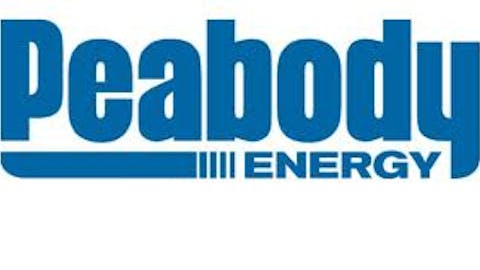ST. LOUIS (AP) — A bankrupt St. Louis-based coal producer’s push to significantly cut thousands of retirees’ health care and pension benefits was in the hands of a judge Monday amid prospects that affected union-backed workers may strike if the ruling is in the company’s favor.
U.S. Bankruptcy Judge Kathy Surratt-States has until May 29 to decide for either Patriot Coal Corporation (OTCMKTS:PCXCQ) or the United Mine Workers of America union. A five-day hearing on the matter wrapped up Friday, and it’s not clear how soon any ruling may come.
Patriot’s proposed benefits cuts have been the most contentious aspect of its bankruptcy case since the Peabody Energy Corporation (NYSE:BTU) spinoff filed for Chapter 11 protection last summer. The company said it would have to spend $1.6 billion to cover the health care costs, putting it at risk of liquidation.
Looking to cease pension contributions, Patriot gave the union a proposal in March that would create a trust with up to $300 million from future profit-sharing to fund some level of health benefits. Patriot also would give the union a 35 percent equity stake in the company once it emerges from bankruptcy.
Patriot CEO Bennett Hatfield has called the moves necessary for Patriot’s survival and the preservation of more than 4,000 jobs, the bulk of them in Kentucky and West Virginia.
The union considers the cuts immoral, drastic and unfair, and an attorney for it told Surratt-States during Friday’s closing arguments that Patriot’s workers would be forced to strike if the company is allowed to walk away from its labor contracts.
Phil Smith, a spokesman for the union, declined to discuss prospects of a walkout Monday, telling The Associated Press that the union would continue trying to reach a deal with Patriot to avert or mitigate the cuts.
“I think we’re a long way from making final determinations (about a strike),” he said. “But there’s no question we still have a lot of work to do in dealing with the company to get us somewhere. At this point, we’re still in talks with the company, and I think all sides would prefer to get an agreement if there’s one to be gotten” instead of having something imposed by the bankruptcy judge.
Prospects of a strike would mirror the labor dispute involving the bankruptcy of Hostess Brands. The Irving, Texas-based maker of Wonder Bread, Twinkies and other cake brands last year filed for Chapter 11 protection and later announced it was going out of business and liquidating after a nationwide strike by its bakers union crippled operations.

Peabody Energy Corporation (NYSE:BTU) has called that claim “a desperate attempt to rewrite history,” noting that “Patriot was highly successful following its launch more than five years ago with significant assets, low debt levels and a market value that more than quadrupled in less than a year.”
Peabody Energy Corporation (NYSE:BTU) argued that on Patriot’s watch, “a series of other unforeseen events affecting all coal producers followed,” including an unprecedented global financial crisis, development of low-cost shale gas that cut demand for coal, burdensome federal regulation and a sharp drop-off in the price of Patriot’s chief product — coal used in the manufacture of steel.
Patriot earlier this year sued Peabody, saying it wants to ensure Peabody doesn’t try to use the bankruptcy to avoid health care obligations to some 3,100 retirees whose future benefits wouldn’t be part of the package Patriot proposed to the union.
Peabody Energy Corporation (NYSE:BTU) last week asked Surratt-States to throw out that lawsuit; Patriot requested that she summarily decide the matter in its favor. That ruling also is pending.
The article Patriot’s Bid to Cut Benefits in Judge’s Hands originally appeared on Fool.com and is written by Associated Press.
The Motley Fool has no position in any of the stocks mentioned.
Copyright © 1995 – 2013 The Motley Fool, LLC. All rights reserved. The Motley Fool has a disclosure policy.


